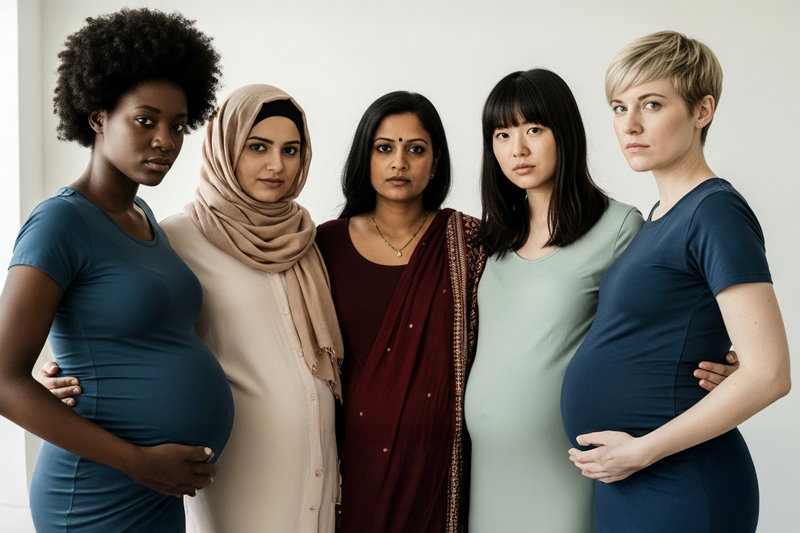In previous installations of this column, I have written about how communities of youth harmed by systemic oppression and inequities rely on peer-to-peer models of care on social media to meet healthcare, safety, and support needs when institutions fail to do so. Namely, queer youth are engaging in life saving harm reduction and suicide prevention through online care networks, and disabled youth engage in organizing that meet their access needs through digital forums. Reliance on the community to meet individual needs is not a resilience and healing tactic that is unique to current generations of youth. In fact, it is a practice we have learned directly from our histories, traditions, and movement elders.

The systemic exclusion and harm enacted by systems that are framed as existing to meet basic needs, such as the healthcare system and education system, are as old as those systems themselves. This harm is perpetuated by the algorithmic frameworks that serve as justifications for these systems’ existence in the first place. Given that this quarter’s issue of Behavioral Health News is focused on maternal mental health, this column will position such inequities during birth as a case study for how community-based individual needs-meeting can serve as resistance and resilience against systemic injustice. As was discussed during a 2022 roundtable by the National Academy of Science, Engineering, and Medicine, the algorithmic calculations utilized by providers to determine whether birth givers are eligible to deliver vaginally after previous c-sections (an algorithm known as the vaginal birth after cesarean (VBAC) success calculator) systematically discriminates against people of color, as this calculation has a “race coefficient” that deems Black and Latina birth givers ineligible for VBAC. This algorithm was directly derived from slavery medicine used to justify the abuse of Black birth givers who were deemed to have “anthropoid pelvises.” While activism by those harmed by these calculations have led to the removal of the “race coefficient” from VBAC success calculations in some healthcare settings, the ongoing racialized pathologization the American healthcare system is constructed on continues to enact violence on communities via its perpetuation of disparities including maternal mortality, which is higher for Black women in the U.S. than in any other high income country. The NASEM roundtable names numerous other healthcare algorithms, including those used to calculate kidney function and lung capacity, as well as diagnostic criteria for mental health conditions, as linked to eugenics and slavery medicine. The inextricability of these inequities form healthcare systems itself points to a need for communities to turn to modes of care that view patients as whole persons in their own contexts with intersecting oppressions, protective factors, and vulnerabilities that all contribute to their overall picture of health, rather than basing treatment on reductive, harmful groupings.
The use of care resources to meet individual needs in their holistic context has been practiced in the education space, which can serve as a blueprint for similar applications to the maternal healthcare and mental healthcare systems. For example, in her book Black Disability Politics, disability justice activist and scholar Sami Schalk details the success of the Oakland Community Schools (OCS) organized by the Black Panthers in the 1970s, in which students’ needs were individually accommodated for with consideration for their unique conditions, rather than being grouped into assumed ability-levels based on algorithmic criteria for learning disabilities, which itself serves to justify harm against Black disabled students by existing in a grouping landscape that constructs the notion of the “good student” as undeniably White, as explained by Alicia A. Broderick and Zeus Leonardo in their article “What a Good Boy: The Deployment and Distribution of ‘Goodness’ as Ideological Property in Schools.” As youth continue to reject the pathologizing labels placed on us and meet each other’s needs without the pretext of racializing, oppressive algorithms, we do so on the foundation built by movement elders like the OCS organizers, and those invested in maternal health equity who advocate against VBAC race coefficients. It is worth centering this framework when discussing how to sustain maternal health and mental health, educational success, youth mental health, and pathways to build more just systems overall.
Sophie Szew (she/they) is a youth mental health advocate, writer, and coterminal master’s degree student at Stanford University. She was appointed by the Secretary of Health and Human Services to advise the federal government on mental health policy as the youngest member of the Substance Abuse and Mental Health Services Administration (SAMHSA) National Advisory Council. Sophie’s storytelling first gained national recognition during the MTV Mental Health Youth Action Forum at the White House, where she met with President Biden and his administration to advocate for systemic mental healthcare justice. Sophie’s lived experience, expertise, and activism have also led them to advise numerous organizations on youth mental health issues, including Mental Health America, Born This Way Foundation, the National Alliance on Mental Illness, and Project Unloaded. In March of 2023, she testified in front of the California State Senate about the impact of algorithmic injustice on youth, and since, her advocacy has been covered by the Today Show, the LA Times, NBC, CBS News, and has landed her a spot on the 2025 Forbes 30 Under 30 Social Media List. Sophie combines her calls for policy change with poetic storytelling, serving as the inaugural poet for LA Mayor Karen Bass. She has community health partnership experience working with the Mount Sinai Hospital System and views her community-building, artistic, and advocacy work as deeply interconnected.





